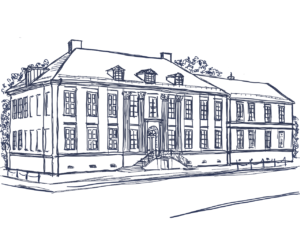 Germany is currently running a major initiative on upgrading its infrastructure to manage research data. nfdip4hys.de has applied to be one of the 30 consortia leading Germanys academia and society as a whole through the Digital Transformation. We are endorsing a new data standard, FDOs, developed by the fairdo.org forum. It will be implemented by NFDI4Phys as a DIN standard in collaboration with the Deutsches Institut für Normung in close contact with key stakeholders in industry, media sized business, politics and the general public. The NFDI process will provide services which enable a revolutionary new way of handling data. FDO will augment the existing TCP/IP protocol for data transfer with a standard for data itself based on the FAIR principles.
Germany is currently running a major initiative on upgrading its infrastructure to manage research data. nfdip4hys.de has applied to be one of the 30 consortia leading Germanys academia and society as a whole through the Digital Transformation. We are endorsing a new data standard, FDOs, developed by the fairdo.org forum. It will be implemented by NFDI4Phys as a DIN standard in collaboration with the Deutsches Institut für Normung in close contact with key stakeholders in industry, media sized business, politics and the general public. The NFDI process will provide services which enable a revolutionary new way of handling data. FDO will augment the existing TCP/IP protocol for data transfer with a standard for data itself based on the FAIR principles.
FDOs will foster a new quality of transdisciplinary cooperation opening up new avenues for scientific progress. The basis for all of this is a unified view on the nature of information. Currently, there are variant views. Very roughly, a physicist thinks about order, a biologist about function, a semiotician strives for meaning, a psychologist looks out for context, a sociologist is concerned about collective public opinion, and, finally, a philosopher wants to transform data into knowledge and searches for meta concepts. The ways we understand information affect the way we analyse and curate data into knowledge guiding us to come up with the necessary types of FDOs. Further, variant concepts of information naturally lead to variant decision strategies and modes of communication. Ethical dimensions need to be considered at this point. Trailing digital transformation is Quantum Revolution which promises another major advance and radically different modes of data processing and interpretation of information.
In addition to variants of RDM the different viewpoints give rise to a deep gap between sciences with or without the notion of semantic content of information. The boundaries are fuzzy. For instance, on the one hand, the enactive view of cognition does assign cognitive abilities but rejects mapping of information content into any representation associated with a symbolic grounding problem. On the other hand, Physics starts to enter the semantic space by defining quantitative semantic metrics to capture higher order differential content, in effect quantifying the qualitative. Here, the concept of causal emergence promises to clarify the notion of emergence and autonomous agents by assigning emergence measures to multivariate data.
These issues will be addressesd by the 2nd Magnus Symposium on the Nature of Information & FDOs: An International Hybrid Workshop in Berlin on the role of information across disciplines and its curation with FAIR Digital objects. Magnus House, Berlin 23-25 February (from 23th at 9 am 25th 6 pm. The Magnus House has a strict concept admitting only 35 people in presence. We will run 2G plus negativ test result policy. We will discuss the role of information in Physics, Biology, Semiotics, Cognition, Psychology, Sociology and Philosophy, as well as in System Engineering, Datascience, Natural Language Processing, Semantic Web Technologies, Experimental Computer Science & SciArt. We will have 10 key speakers (30-45 min) across disciplines and topics enumerated above.
This workshop shall emphasise the reciprocal relationship of basic research on information with the necessary infrastructure and technical protocols to handle data carrying information: Both are fostering each other. Natural language processing is a prime example.
Speakers
-
FAIR Digital Objects Satellite Workshop
- Hans-Günther Döbereiner, U Bremen, NFDI4Phys
- Frank Tristram, KIT, NFDI4Phys
- Stefan Weisgerber, DIN, Digital Platforms
- MAximilian Funke Kaiser, MdB
- Edit Herczog, Vision & Values SRL, Brussels
- Sascha Eichstädt, PTB, Digital Transformation
- Alireza Zarei, GWDG
- Oya Beyan, U Cologne, 4DS
- Harry Enke, PUNCH4NFDI, Leibniz-Institut für Astrophysik Potsdam
- Peter Wittenburg, FDO-Forum
-
2nd Magnus Symposium: On the Nature of Information
- Lutz Schröter, DPG
- Hans-Günther Döbereiner, U Bremen, NFDI4Phys
- Peter Wittenburg, FDO-Forum
- Erhard Hinrichs, Leibniz Institut für Deutsche Sprache, TEXT+
- Rafael Yuste, Columbia University
- Andreas Kreiter, U Bremen
- Nihat Ay, TU Hamburg, Santa Fe Institute
- Frank Kirchner, DFKI Bremen
- Pedro A. Mediano, U Cambridge
- Frantisek Baluska, U Bonn
- Marc Hütt, Jacobs U
- Michael Levin, Tufts U
- Christina Oettmeier, U Bremen
- Thorsten Fehr, U Bremen
- Udo Ernst, U Bremen
- Josef Käs, U Leipzig
- Joachim Rädler, LMU Munich
- George Ellis, U Cape Town
- Chris Wiggins, NY Times, U Columbia
- Giovanna Morigi, U Saarbrücken
- Matt Sims, U Bochum, Humboldt Fellow
- Krzysztof Dolega, U Bochum
- Jan Nagler, Frankfurt Scool of Finane and Management
- Lorenz Kähler, U Bremen
- Robert Porzel, U Bremen
- Malte Lochau, U Siegen, FDO-Forum
- Lars Hornuf, U Bremen
- Claudia Biniossek, TIB, METHODS
- Philipp Wieder, GWDG, FDO-Forum
- Frank Tristram, KIT
Registration
Register here for the FAIR Digital Objects Satellite Workshop
Register here for the 2nd Magnus Symposium on the Nature of Information
Due to the current pandemic restrictions we have to limit the number of participants on site. Please inform us if you participate in the entire symposium or just on selected days. Remote participation is also possible.